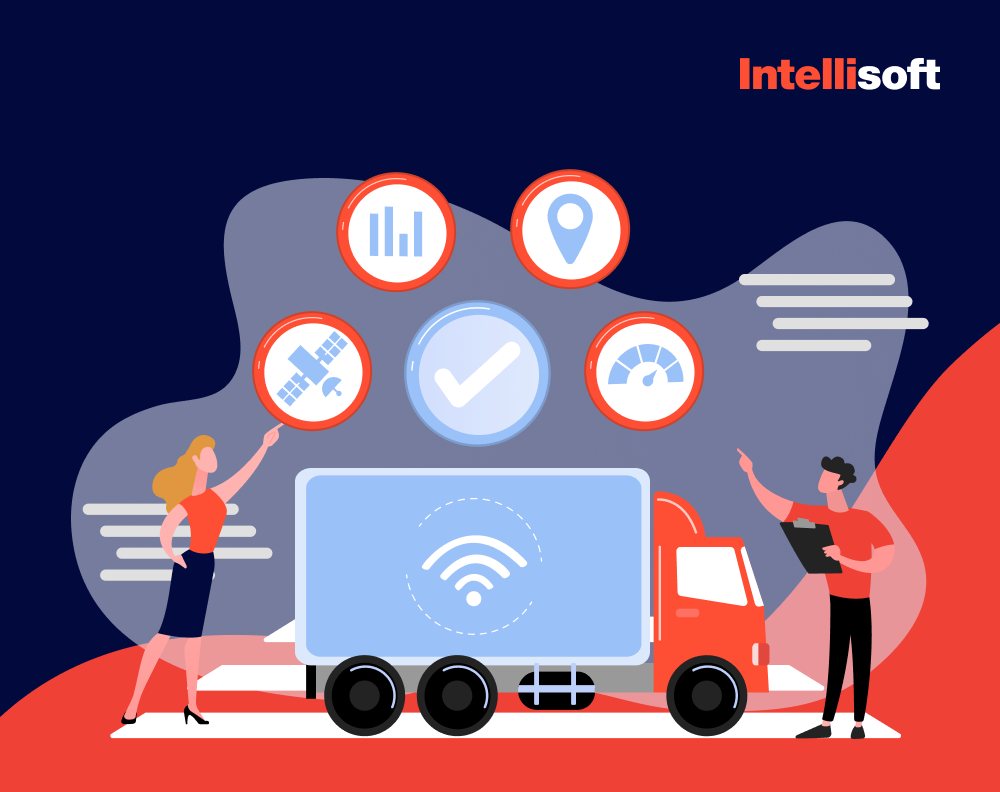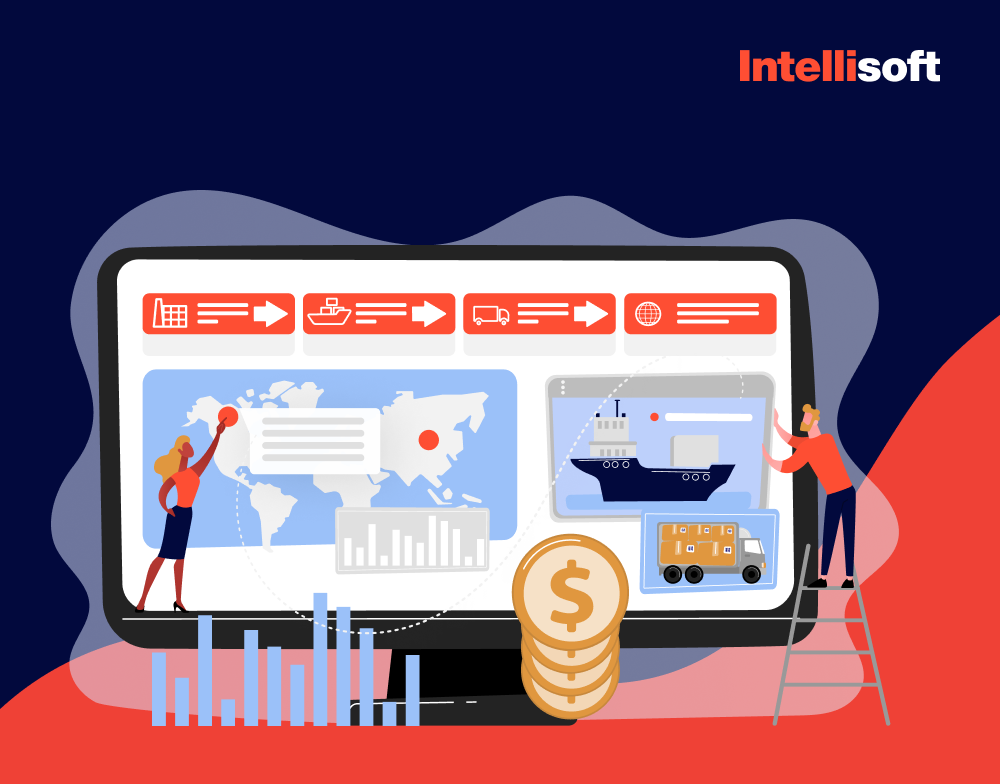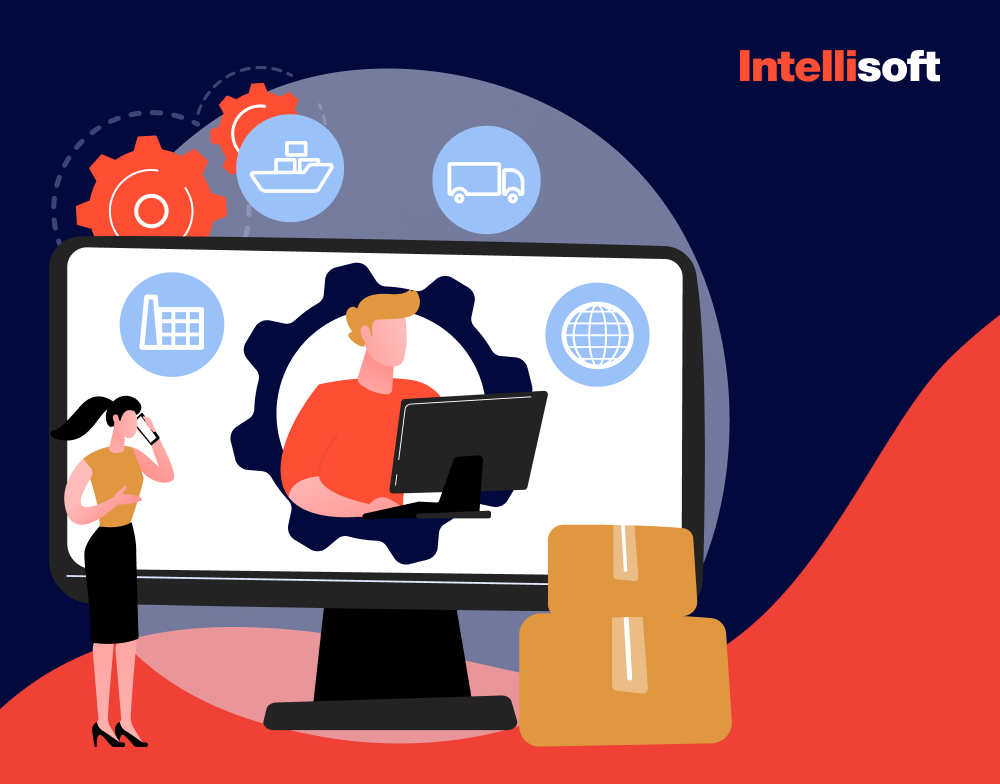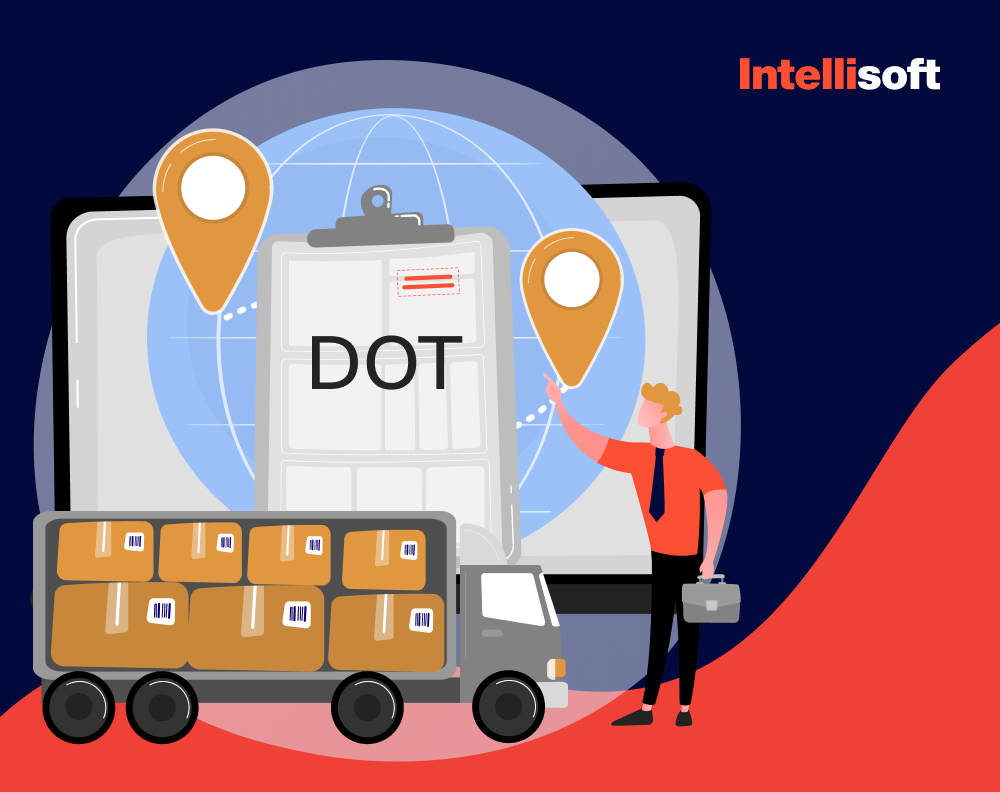LogisticManager recently conducted a study illuminating the alarming issue of road freight crime prevention in the UK. According to the report, the UK economy suffers a staggering annual loss of £250 million due to cargo delivery crime. These figures are concerning and have left many industrial businesses searching for advanced security technologies to protect their logistics.
If you’re wondering what technologies can help improve logistics security, you’re in the right place. We will delve into the threats that logistics face, provide tips for enhancing security, and explore the tech stack that can be used to boost security in your logistics business. The expertise of IntelliSoft will also be mentioned there, including the development of highly secured fleet management systems for cargo operators.
Table of Contents
Risks in Logistics and Supply Chain
In the world of supply chain, the strength of the entire chain is reliant on the weakest link. Unfortunately, supply chain businesses face a significant and costly issue known as inventory shrinkage, which creates consequences in two ways. Not only does cargo theft negatively impact a business’s profitability and financial bottom line, but it can also lead to damaged relationships with clients and suppliers.
The risks associated with each supply chain link vary in severity from one country to another. Based on the 2020 BSI-TT Club Cargo Theft Report, Europe experienced the highest number of cargo truck thefts, while China and India suffered the most from thefts that occurred within warehouses.
Security threats come from a variety of sources throughout the supply chain. Unfortunately, up to 60% of all cargo losses are believed to involve insiders, meaning that employees are often involved in these crimes and collude with criminals to enable them. Additionally, different sectors in the logistics and transportation industry face their own unique threats that require specific attention and management.
Freight
Transporting goods by truck involves a considerable level of risk. Although moving goods from one place to another appears to be simple, criminals have numerous opportunities to target the drivers and steal the cargo. As illustrated in the risk matrix below, no part of the journey is entirely risk-free.

Thieves tend to adapt their tactics depending on the various stages of a driver’s journey. As evident from the matrix, the vehicle itself and the driver’s personal belongings are also valuable targets for thieves.
Maritime Ports
Maritime ports typically have numerous security procedures and protocols, yet securing them can be quite challenging. Ports cover vast areas, making it difficult to ensure that the entire perimeter is always secure. Furthermore, being situated on the water’s edge makes it even more challenging to monitor the perimeter. Unlike on land, the usual barriers and equipment you install to establish a boundary do not work in water.
Warehouses
Warehouses are often targeted by insiders involved in inventory shrinkage and cargo theft. While warehouses are typically built with a new model logistics security in mind, the access protocols that permit individuals to enter the facility often need to be revised. According to the BSI-TT Club Report, warehouses in India and China are particularly susceptible to cargo theft due to poor access codes and key management. Keys belonging to previous employees are not revoked, allowing them unauthorized access to the facility.
Best Practices for Logistics Security
Every day, a vast range of goods are transported through established supply chains, moving from one business to another. Whether from a manufacturer to a supplier or retailer, these goods are exposed to various risks, such as theft, vandalism, and damage. Implementing robust logistic security measures is essential for the security and safety of these basic goods. These measures involve protecting and tracking goods while they are in transit or temporarily stored in warehouses.
You can ensure comprehensive protection of your goods in various ways. These methods can range from implementing advanced security systems to using GPS tracking technology to monitor the movement of cargo. Regardless of the approach, the ultimate goal is safeguarding the goods and ensuring they reach their final destination securely and efficiently.
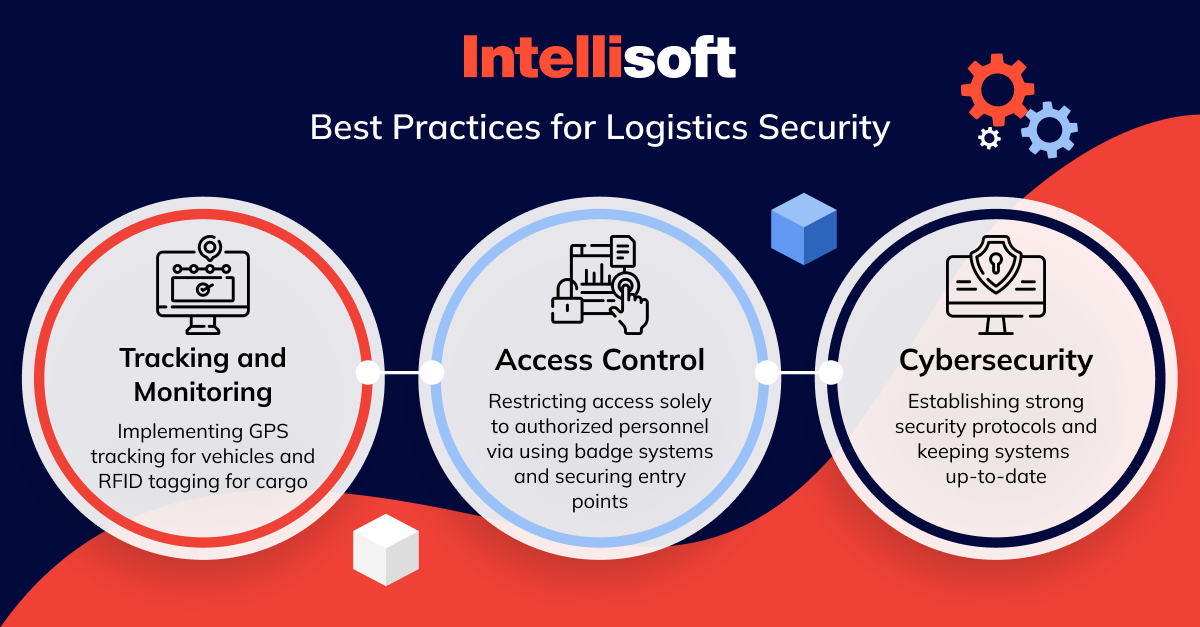
Tracking and Monitoring
Ensuring the security of your assets is of utmost importance, and real-time tracking and monitoring systems using logistics software can play a crucial role in achieving this. By implementing GPS tracking for your vehicles and RFID tagging for your cargo, you can gather valuable data that will allow you to keep a close watch on your assets around the clock. This tracking not only helps you prevent theft or loss, but also enables you to optimize your operations and make informed decisions based on the data collected.
Access Control
Establishing robust measures to control access to your logistics facilities is crucial. You can achieve this by implementing comprehensive security logistics protocols, such as using badge systems, installing surveillance cameras, and securing entry points. By restricting access solely to authorized personnel, you can significantly mitigate the risk of theft and sabotage, safeguarding your assets and operations.
Cybersecurity
In today’s world, logistics security is not limited to the physical realm. Ensuring the safety of your digital infrastructure from cyber threats is equally critical. Therefore, investing in robust cybersecurity measures that can comprehensively protect your data and communications against all types of cyber attacks is essential. By implementing strong security protocols and keeping your systems up-to-date, you can significantly reduce the risk of data breaches, cyber-attacks, and other digital threats.
Related articles:
- How to Develop Logistics Management System: Timeframe, Tech Stack, and Costs
- Machine Learning in Logistics Industry: Benefits and Use Cases
- How Predictive Analytics Solutions Are Benefitting Supply Chain
- The Ultimate Blueprint for Building a Successful Packers and Movers App
- Warehouse Automation Systems: Revolutionizing Supply Chains for Unprecedented Efficiency
Technology Advancements in Logistics Safety and Security
The logistics industry has been the fundamental driving force behind global trade, facilitating the smooth and efficient movement of goods across borders and continents for many decades. However, the logistics operations are highly complex and massive in scale, making it challenging to ensure safety and security. Fortunately, with recent technological advancements, logistics operations can leverage powerful tools to address these challenges and enhance safety in logistics industry.
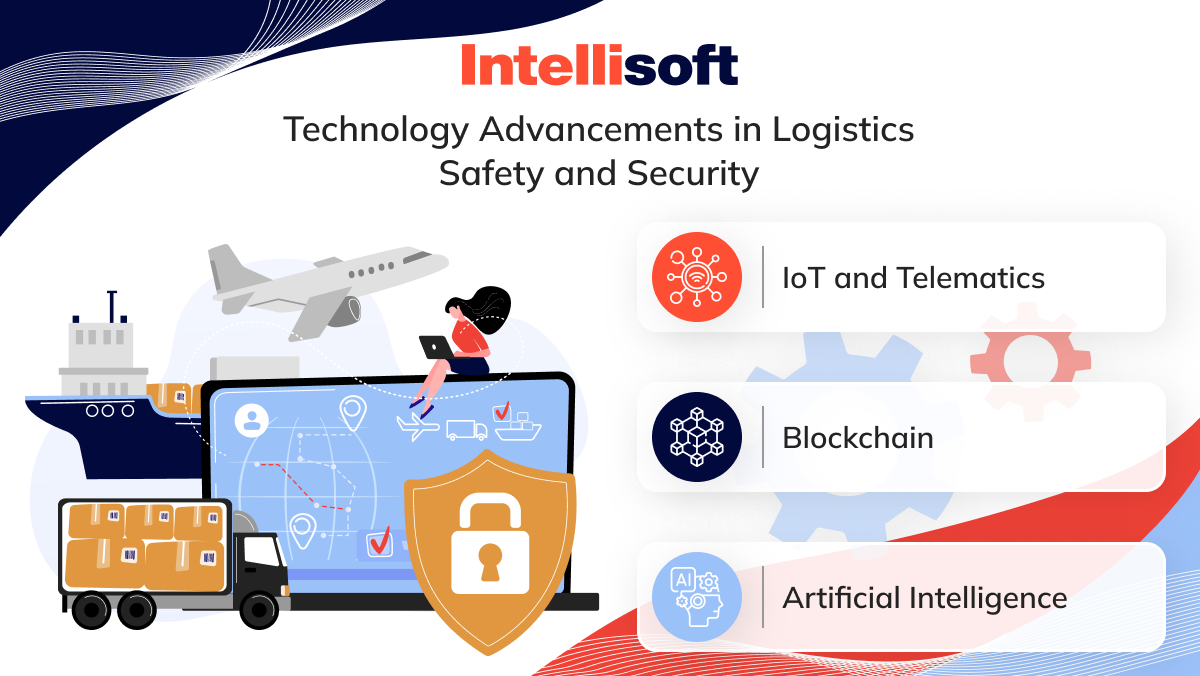
IoT and Telematics
The logistics industry has undergone a significant transformation with the introduction of the Internet of Things (IoT) and telematics technology. These cutting-edge technologies have revolutionized logistics safety and security, providing real-time data on vehicle location, performance, and driver behavior. This approach gives logistics companies better visibility and control over their operations, enabling quick decision-making and efficient monitoring of logistics processes. With the help of IoT and telematics technology, logistics companies can ensure that their operations are more reliable, secure, and efficient than ever.
Blockchain
As the logistics industry evolves, blockchain technology is emerging as a promising solution to enhance security and streamline operations. With its decentralized and tamper-proof nature, blockchain can significantly reduce the risk of fraud, improve transparency, and secure the supply chain from end to end. By leveraging this technology, logistics companies can ensure that every process step is securely recorded and tracked, from the initial order to the final delivery, providing a secure and reliable platform for businesses and customers.
Artificial Intelligence
Artificial Intelligence (AI) has become crucial for businesses to optimize their operations, enhance security measures, and minimize expenses. One of the critical applications of AI is predictive maintenance. This technology can predict equipment failures before they occur, reducing downtime and maintenance costs. Another important application of AI is route optimization, helping businesses increase efficiency, reduce delivery times, and minimize fuel consumption. Additionally, new model logistics security systems can analyze massive amounts of data to identify anomalies and potential risks, allowing organizations to take proactive measures to mitigate those risks.
How IntelliSoft Can Help with Logistics Security?
Leveraging the services of an outsourcing software development company can significantly enhance security logistics and improve overall business efficiency. By utilizing their specialized skills, state-of-the-art technology, and innovative solutions, businesses can reduce risks, streamline operations, and ensure compliance with international standards and regulations.
At IntelliSoft, we craft customized software solutions that address the unique challenges and vulnerabilities within the logistics and supply chain sector, ensuring your operations are resilient against threats and optimized for success. Our services are agile and scalable, enabling us to adapt to market changes and emerging security threats quickly. We partnered with projects such as SpecTec and Ingram Barge to build comprehensive systems that provide outstanding operational efficiency, data management, and fleet security.
IntelliSoft is your strategic partner in protecting logistics operations from disruptions and security breaches. Contact us to discuss how we can work together for a safer, more efficient future for your supply chain.


